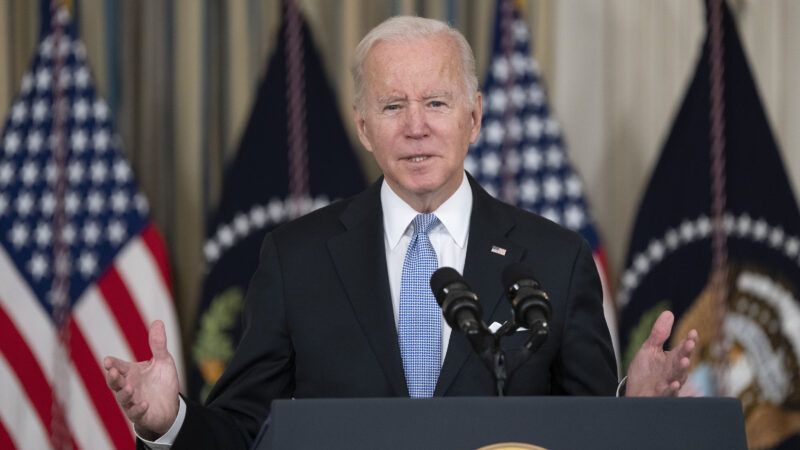A Federal Judge Denied Trump's Claims of Permanent Executive Privilege
In denying the former president's claims of executive privilege, a federal judge sets a blueprint which should apply to sitting presidents as well.

Last week, a federal judge ruled that former President Donald Trump does not have the authority, in his post-presidency, to invoke executive privilege and keep documents and the testimony of former staffers shielded from the House of Representative's Select Committee to Investigate the January 6th Attack on the United States Capitol, especially if President Joe Biden, as the current office-holder, chooses to waive the privilege.
Executive privilege is the principle that certain communications between the president and some senior staff members are "privileged," and therefore not subject to oversight, such as the subpoenaing of documents or staffers. Presidents since George Washington have invoked some form of executive privilege. In 1977, the U.S. Supreme Court ruled that ex-presidents do retain some right to invoke executive privilege, but did not specify how much or how little.
In this particular case, the sought-after information includes hundreds of pages of contemporaneous documents and memos detailing communications among White House officials on January 6. Trump argued that the privilege to shield documents from disclosure "extends beyond his tenure in Office, in perpetuity, and…is binding on the current executive branch." He further argued that Congress had no right to ask for the documents in the first place and that their release posed "an imminent threat of irreparable harm."
In her ruling, Judge Tanya Chutkan of the U.S. District Court for the District of Columbia sharply disagreed. She determined that the requests "do not exceed the Committee's legislative powers," specifying that while the list of documents is "indeed broad," "so too is Congress' power to obtain information." Chutkan also applied the test elucidated by the Supreme Court in last year's Trump v. Mazars case, in which the then-president was unable to prevent his tax preparer from turning over documents in response to a congressional subpoena. Chutkan found that the committee's position met all four factors of consideration.
As to the charge of "imminent…irreparable harm," Chutkan found the evidence lacking, writing that Trump "has made no showing of imminent irreparable harm to any interests protected by executive privilege," whether his own personal interests or those of the office of the presidency, especially if the sitting president chooses to waive the privilege. Perhaps most forcefully, Chutkan wrote in response to Trump's claim of executive privilege existing "in perpetuity," that "Presidents are not kings, and Plaintiff is not President." On Thursday, in response to an appeal by the former president, the U.S. Court of Appeals for the District of Columbia Circuit stayed Chutkan's ruling, pending arguments later this month. But Chutkan's decision is the right one, not only for this case, but as a blueprint going forward.
The use of executive privilege by ex-presidents should be drastically limited since secrecy is a persistent issue among modern presidential administrations: The famously opaque Bush administration cited executive privilege to resist investigations not only of itself, but of its predecessor, the Clinton administration. And despite consistently touting itself as the most transparent administration in history, the Obama years represented more of the same.
Over the weekend, The Washington Post published an op-ed by George J. Terwilliger III, who served as counsel to Mark Meadows, the former White House chief of staff, who is currently refusing a subpoena for his testimony and papers. Terwilliger claims that Biden's decision to waive privilege "fl[ies] in the face of 200 years of history," citing "how critical it is for senior aides to be able to communicate freely with the president—and how dangerous a precedent [Meadows] would set for presidents of both parties were he to appear and answer questions without limitation."
Typically, those defending the principle make this argument, that the people whom the president trusts for advice cannot be constrained by the possibility that one day, a legal or congressional investigation could call them to testify about the counsel they provide. However, there is no constitutional basis for this exception. Article I of the Constitution specifically contains a "Speech or Debate Clause" expressly granting criminal and civil immunity to members of Congress for any speech made in the course of their duties; the executive branch enjoys no such equivalent, which indicates that the Founders never intended for there to be entire categories of communication for which a president and his advisers would be immune from investigation. Besides, in practice, executive privilege is much more likely to be used to shield the executive branch from oversight relating to its own wrongdoing.
This case could present a good opportunity for compromise on the issue of executive privilege: The Trump administration claims near-absolute immunity from oversight, and the Biden administration has stated that it will selectively waive the immunity on its predecessor's behalf, while still falling far short of the transparency ideal in other areas. Going forward, executive privilege should be sharply limited to the discussion of the most sensitive of issues: appropriately-classified information, matters of national security, issues of diplomacy, etc. All else should be presumed inherently disclosable unless the administration can make a case for concealing it.
And in the case of former administrations, the privilege should be pared to the bone, with only the most highly sensitive information retaining further secrecy.


Show Comments (53)